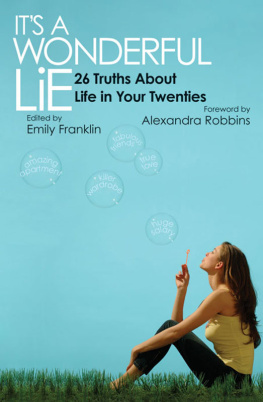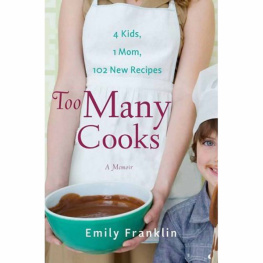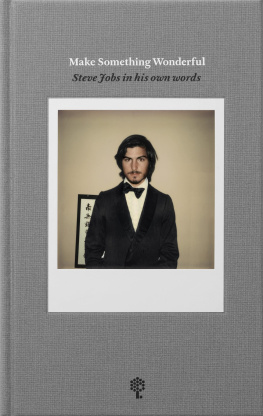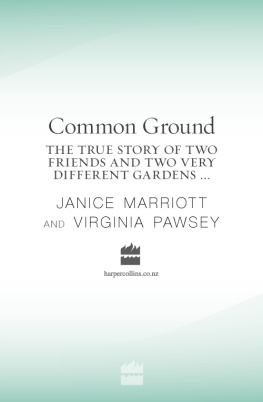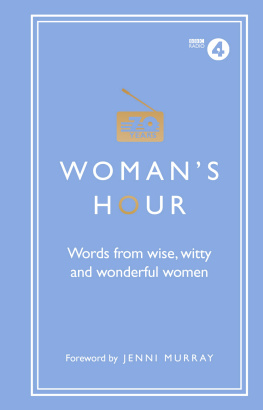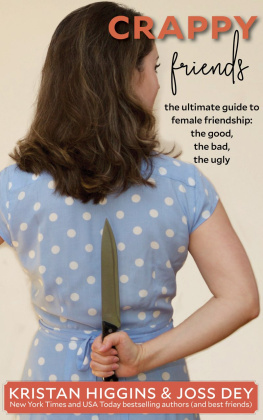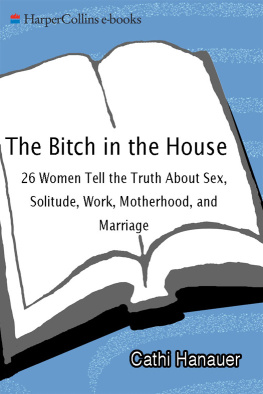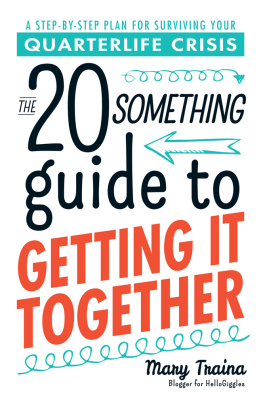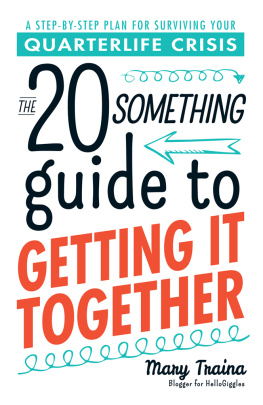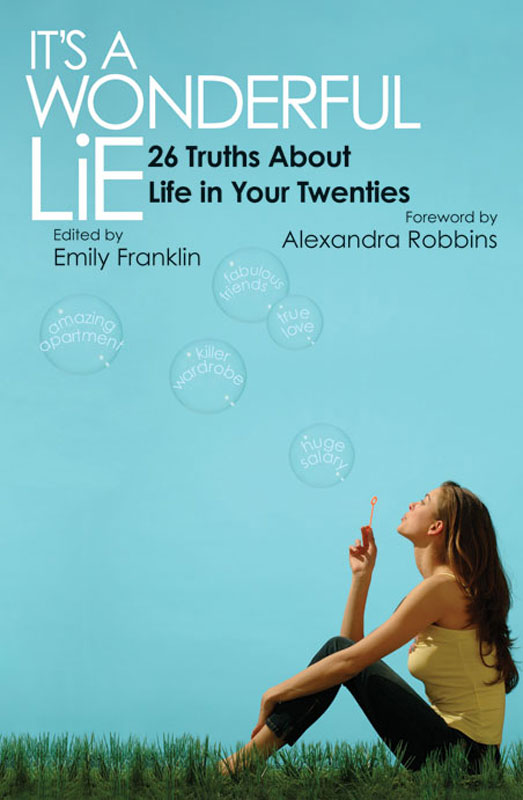Copyright of the collection 2007 by Emily Franklin
Introduction copyright 2007 by Emily Franklin
Foreword copyright 2007 by Alexandra Robbins
Copyright page continues at the end of the book.
All rights reserved. Except as permitted under the U.S. Copyright Act of 1976, no part of this publication may be reproduced, distributed, or transmitted in any form or by any means, or stored in a database or retrieval system, without the prior written permission of the publisher.
5 Spot
Warner Books
Hachette Book Group USA
237 Park Avenue, New York, NY 10017
Visit our Web site at HachetteBookGroupUSA.com
First eBook Edition: January 2007
ISBN: 978-0-7595-1679-3
For the friends who saw me into and out of my twenties
To Andie Avila; Faye Bender; everyone at Warner for help and enthusiasm; and to that wonderful, weird, crazy, demanding, lovely decade gone bythank you.
Over the last several years, Ive interviewed thousands of twenty-somethings, many of whom told me stories like this one: When Gail, a thirtysomething in New York City, was in her twenties, there was a period when she was crying every day. She hated her job, she knew her boyfriend of four years wasnt The One, she was sick of her roommates, and worst of all, she had an identical twin sister in medical school to whom she was constantly being compared. [She was] on a track. Where was my track? Gail recalled. I was flipping out. I was reaching a dead end; I was miserable and lonely. It was like, Where do I go from here? I felt I wasnt a real adult yet.
After several months, Gail decided to consult a psychiatrist for the first time. In the clichd dim and dingy office, an older man with a notepad asked her what seemed to be the problem. Gail broke down in tears and explained her issues. She could think of only one way to describe them. Im having a midlife crisis, she said.
The doctor burst out laughing. You dont look middle-aged to me, he said, guffawing, so I dont think youre having a midlife crisis.
While the doctors insensitive reaction left Gail feeling more depressed than before, he was right about one thing: Gail wasnt having a midlife crisis. She was having a Quarterlife Crisis.
Im not one to label for the sake of labeling, and I dont think the rest of our generation is, either. In recent years, a new wave of classifications have been thrust upon those of us who happen to fall between the ages of eighteen and twenty-nine: We are, apparently, twixters, permanent adolescents, boomerangers, kidults, thresholders, and slackers, living in a Peter Pan syndrome.
Peter Pan syndrome is so named because many researchers and reporters assume that twentysomethings refuse to grow up. Similarly, the terms twixters and thresholders are based on the notion that the post-pubescent purgatory we occupy is one of our own choosing. Sociologist Terri Apter insisted recently, Theyre on the threshold, the doorway to adulthood, and theyre not going through it. Its as if, after sixteen or more years in a sheltered school setting, we pull over our graduation tassels and suddenly are expected to become equipped emotionally, pragmatically, and financially to make the major decisions associated with going through that door. But thats not the way it works.
The labels permanent adolescents and boomerangersas in we listlessly boomerang back into our parents homesimply that, out of laziness, we would much prefer to waste our lives loafing while watching afternoon television and munching Fritos on our parents couch. CNN has specifically accused twentysomethings of wanting merely to lay around.
We dont languish in our state of limbo, however, as much as we battle it. Simply put, it is more difficult to be a twentysomething now than it was forty years ago. We face the most competitive hiring pool in history, with increasing numbers of college graduates. Furthermore, the age at which older generations expect us to succeed is rapidly plummeting; no longer is a thirty-year-old CEO deemed a whiz kid. With professional athletes drafted out of high school and A-list singer-actors in their teens, were made to feel that if we havent achieved something monumental by age twenty-five, then were already over the hill. Regarding marriage, we are heavily influenced by that legendary 50 percent divorce rate. We do not want to make our parents mistakes.
The truth is, were not averse to growing up; we simply want to grow up responsibly. If growing up means attaining typically adult accoutrements, then its not a question of wont, but cant. Generations before us could afford to support a marriage, house, and family in their early twenties because entry-level incomes could fund them. Today we wait until at least our late twenties, with good reason. We are the first generation in American history who wont do better financially than our parents. Add to that setback the crushing costs of student loans and lower incomes than previous twentysomethings had, and its clear why taking our time is not just a preference but a necessity. Arguably, it is more adult of us to delay traditionally adult responsibilities until we financially and emotionally are able to support ourselves, let alone others.
When I first began using the phrase Quarterlife Crisis to describe a common experience occurring between the late teens and late thirties, it provoked derision from older adults. Contrary to a belief popular among older people, the Quarterlife Crisis is not the idle whining of a coddled, presumptuous post-adolescent. It is the response to reaching the turning point between young adulthood and adulthood; it is the amalgamation of doubt, confusion, and fear that comes with facing an overwhelming set of identity issues and societal expectations at once. The Quarterlife Crisis can spark a variety of reactions ranging from subtle self-doubt to issues as serious as clinical depression.
The biggest difference between my label and the condescending new catchphrases is that I identified an experience, not a generation. The term Quarterlife Crisis offers a category for those who wish to be reassured that their doubts are normal. Young adults can choose whether or not to associate with it.
I imagine if Gails psychiatrist, whom she never went to again, heard me today, he would probably still laugh. Some adultsusually those in a midlife crisisroll their eyes when they hear Quarterlife Crisis. Twentysomethings cant be in crisis! they say. When you have your youth and freedom, you have nothing to complain about.
I try turning the tables. If thats your reason for dismissing a Quarterlife Crisis, I reply, then how can you complain about a midlife crisis when you have a spouse, a car, a savings account, and a backyard with a pool? They are not amused. The generation gap grows fierce.
Gail, like many women in their thirties, is happy now and more at peace with herself. Over the years, she has taught herself strategies and coping mechanisms to help her figure out who she is and who she wants to be. I believe her success in conquering these issues means that for her, middle age will be a breeze. Because we in Gails generation are confronting our identity demons in our twenties rather than waiting until our forties or fifties, I dont think were going to have a midlife crisis. And then older doctors who dismissed our doubts will see who has the last laugh.
Alexandra Robbins
This collection came about through a universal feeling: the disillusionment of being twentysomething. We start the decade full of hope, curiosity, and images of what will be, and yet, once were there, were often left wondering if this is it.

